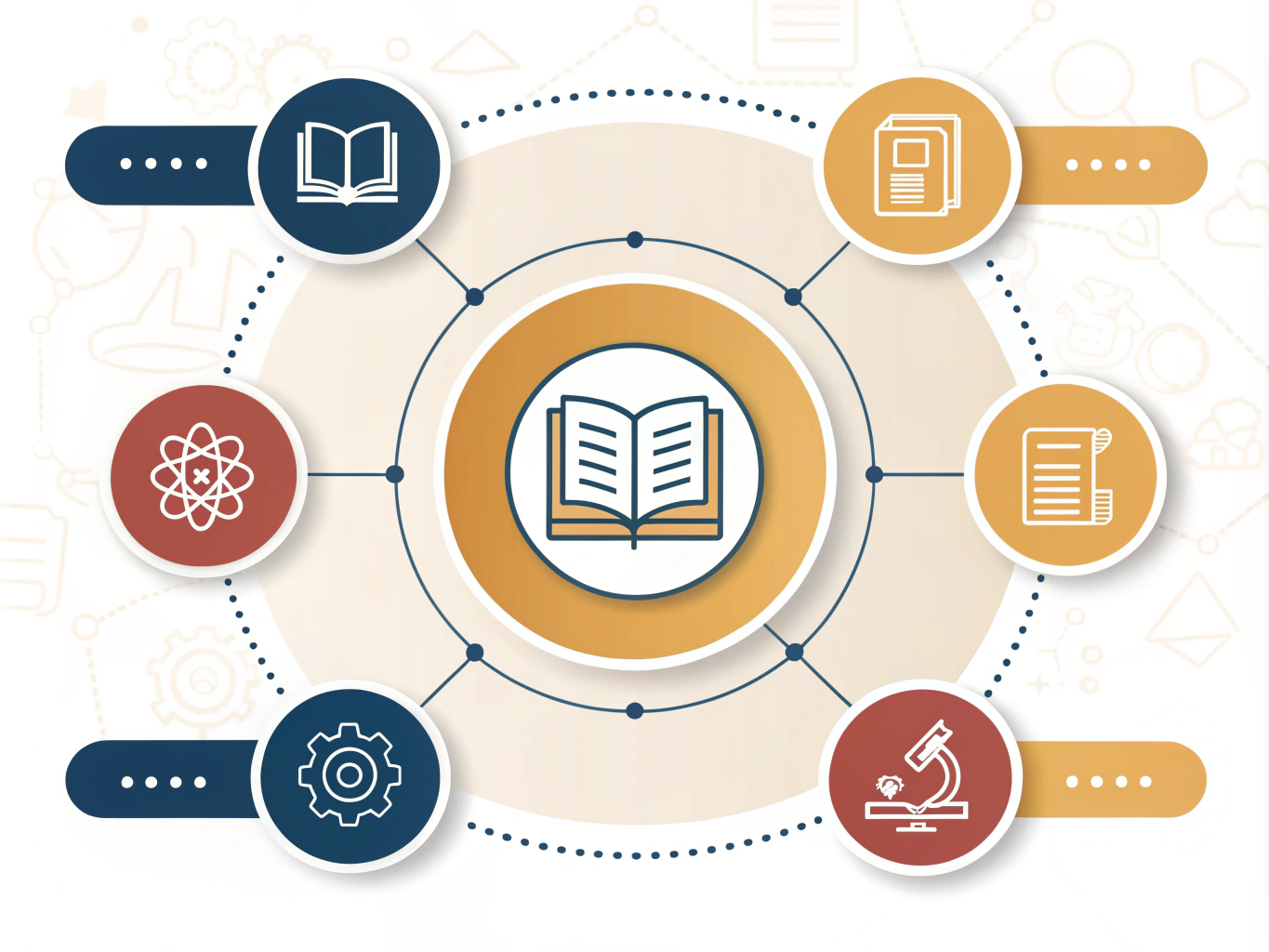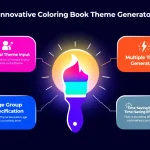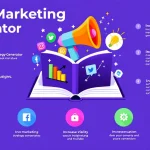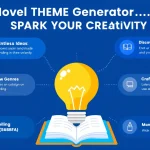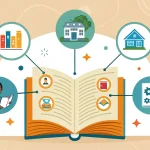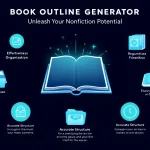Is this tool helpful?
How to Use the Personalized Reading Plan Generator Effectively
To make the most of our Personalized Reading Plan Generator, follow these simple steps:
- Enter the Author or Topic: In the first field, input either an author’s name or a specific literary topic you’re interested in exploring. For example, you might enter “Virginia Woolf” or “Modernist Literature.”
- Provide Additional Guidance (Optional): In the second field, you can add any specific interests or themes you’d like to focus on. This could be something like “feminist themes in early 20th-century literature” or “experimental narrative techniques.”
- Generate Your Plan: Click the “Generate Reading Plan” button to create your personalized three-phase reading plan.
- Review Your Plan: Once generated, your reading plan will appear below the form. Take time to review each phase and the recommended books.
- Copy and Save: Use the “Copy to Clipboard” button to save your reading plan for future reference.
Unlocking Literary Worlds: Your Gateway to Personalized Reading Adventures
Welcome to the Personalized Reading Plan Generator, your ultimate companion in navigating the vast landscape of literature. This innovative tool is designed to craft tailored reading journeys that cater to your specific interests, whether you’re diving deep into the works of a particular author or exploring a broader literary theme.
What Sets Our Reading Plan Generator Apart?
- Customization: Unlike generic reading lists, our generator creates a plan uniquely suited to your interests and goals.
- Structured Approach: The three-phase system ensures a comprehensive exploration of your chosen topic or author.
- Expert Curation: Our tool draws from a vast database of literary works, considering critical acclaim, relevance, and hidden gems.
- Flexibility: Whether you’re a casual reader or a serious scholar, the plan adapts to your needs.
The Benefits of Using the Personalized Reading Plan Generator
1. Tailored Literary Exploration
Our generator doesn’t just provide a random list of books. It carefully constructs a journey through literature that aligns with your specific interests. Whether you’re fascinated by the Beat Generation or eager to explore magical realism, your reading plan will be as unique as your literary tastes.
2. Structured Learning Experience
The three-phase approach ensures that you build a solid foundation before delving into more complex or obscure works. This structure helps you develop a deeper understanding of your chosen author or topic, enhancing your overall reading experience.
3. Discovery of Hidden Gems
While bestsellers and classics have their place, our generator also introduces you to lesser-known works that might become your new favorites. This balance of popular and niche selections broadens your literary horizons.
4. Time-Saving Curation
In the age of information overload, deciding what to read next can be overwhelming. Our generator does the heavy lifting for you, saving hours of research and indecision. You can trust that each recommendation has been carefully selected for its relevance and quality.
5. Intellectual Growth and Personal Development
A well-structured reading plan can be a powerful tool for personal growth. By engaging with carefully selected works, you’ll gain new perspectives, enhance your critical thinking skills, and deepen your understanding of various literary traditions and cultural contexts.
Addressing User Needs: How Our Generator Solves Reading Dilemmas
The Challenge of Choice
In today’s world, readers face an abundance of options. With millions of books available at our fingertips, choosing what to read next can be paralyzing. Our Personalized Reading Plan Generator tackles this problem head-on by providing a curated selection based on your interests.
Example: Exploring Dystopian Literature
Let’s say a user is interested in dystopian literature but doesn’t know where to start beyond “1984” and “Brave New World.” Here’s how our generator might craft a reading plan:
ABOUT THIS READING PLAN
It sounds like you’re interested in dystopian literature, so here’s a reading plan to help you explore this thought-provoking genre more deeply.
PHASE 1: Core Reading
- “The Handmaid’s Tale” by Margaret Atwood. This book was chosen because it offers a feminist perspective on dystopian themes.
- “Fahrenheit 451” by Ray Bradbury. This book was chosen because it explores censorship and the preservation of knowledge in a dystopian society.
- “We” by Yevgeny Zamyatin. This book was chosen because it’s considered one of the earliest dystopian novels, influencing later works in the genre.
PHASE 2: Extended Reading
- “The Road” by Cormac McCarthy. This book was chosen because it presents a post-apocalyptic dystopia with a focus on survival and human relationships.
- “Never Let Me Go” by Kazuo Ishiguro. This book was chosen because it offers a subtle, haunting take on dystopian themes in a near-future setting.
- “The Hunger Games” by Suzanne Collins. This book was chosen because it popularized dystopian fiction for young adults and explores themes of rebellion.
- “Station Eleven” by Emily St. John Mandel. This book was chosen because it blends post-apocalyptic dystopia with reflections on art and human resilience.
PHASE 3: Exploratory Reading
- “The Power” by Naomi Alderman. This book was chosen because it presents a unique dystopian scenario exploring gender dynamics and power structures.
- “The Drowned World” by J.G. Ballard. This book was chosen because it combines dystopian elements with climate fiction, offering a different perspective.
- “Parable of the Sower” by Octavia Butler. This book was chosen because it addresses dystopian themes through the lens of race and social justice.
- “The Dispossessed” by Ursula K. Le Guin. This book was chosen because it explores utopian and dystopian elements, offering a nuanced view of societal structures.
- “A Clockwork Orange” by Anthony Burgess. This book was chosen because it delves into psychological conditioning and free will in a dystopian setting.
OUTLINE SUMMARY
This reading plan will give you a solid foundation in dystopian literature, covering classic works, modern interpretations, and diverse perspectives on societal challenges.
Addressing the Need for Depth and Context
Many readers struggle to contextualize individual works within an author’s broader oeuvre or a literary movement. Our generator solves this by providing a structured approach that builds understanding over time.
Example: Exploring the Works of Jane Austen
For a reader interested in Jane Austen, the generator might create the following plan:
ABOUT THIS READING PLAN
It sounds like you’re interested in exploring Jane Austen’s works, so here’s a reading plan to help you understand her literary contributions and social commentary.
PHASE 1: Core Reading
- “Pride and Prejudice” by Jane Austen. This book was chosen because it’s Austen’s most famous work, showcasing her wit and social observations.
- “Sense and Sensibility” by Jane Austen. This book was chosen because it demonstrates Austen’s exploration of contrasting personality types and societal expectations.
- “Emma” by Jane Austen. This book was chosen because it features one of Austen’s most complex heroines and intricate plots.
PHASE 2: Extended Reading
- “Persuasion” by Jane Austen. This book was chosen because it’s Austen’s last completed novel, offering a mature perspective on love and second chances.
- “Mansfield Park” by Jane Austen. This book was chosen because it addresses more serious themes, including social class and moral education.
- “Northanger Abbey” by Jane Austen. This book was chosen because it playfully parodies Gothic novels while exploring the dangers of an overactive imagination.
- “Lady Susan” by Jane Austen. This book was chosen because it’s an epistolary novella, showcasing Austen’s early writing style.
PHASE 3: Exploratory Reading
- “Jane Austen: A Life” by Claire Tomalin. This book was chosen because it provides biographical context for understanding Austen’s works.
- “What Matters in Jane Austen?” by John Mullan. This book was chosen because it offers insightful analysis of Austen’s writing techniques and themes.
- “The Jane Austen Book Club” by Karen Joy Fowler. This book was chosen because it explores Austen’s enduring influence on modern readers.
- “Longbourn” by Jo Baker. This book was chosen because it reimagines “Pride and Prejudice” from the servants’ perspective, offering a new view of Austen’s world.
- “Jane Austen: The Secret Radical” by Helena Kelly. This book was chosen because it examines the political and social commentary in Austen’s novels.
OUTLINE SUMMARY
This reading plan will give you a comprehensive understanding of Jane Austen’s works, her literary techniques, and her lasting impact on literature and popular culture.
Practical Applications: Bringing Literature to Life
For Students and Academics
Our Personalized Reading Plan Generator is an invaluable tool for students and academics at all levels. Whether you’re preparing for a literature course, researching for a thesis, or simply expanding your knowledge, a tailored reading plan can significantly enhance your studies.
Case Study: Preparing for a Modernist Literature Course
A graduate student preparing for a course on Modernist literature might use our generator to create a comprehensive reading list. Here’s how it might look:
ABOUT THIS READING PLAN
It sounds like you’re preparing for a Modernist literature course, so here’s a reading plan to help you understand the key authors and works of this influential movement.
PHASE 1: Core Reading
- “Ulysses” by James Joyce. This book was chosen because it’s considered a cornerstone of Modernist literature, known for its experimental style.
- “To the Lighthouse” by Virginia Woolf. This book was chosen because it exemplifies the stream-of-consciousness technique popular in Modernist writing.
- “The Waste Land” by T.S. Eliot. This book was chosen because it’s a seminal Modernist poem, reflecting the fragmentation of post-WWI society.
PHASE 2: Extended Reading
- “Mrs. Dalloway” by Virginia Woolf. This book was chosen because it explores Modernist themes of time, memory, and social critique.
- “The Sun Also Rises” by Ernest Hemingway. This book was chosen because it represents the “Lost Generation” and Hemingway’s distinctive Modernist style.
- “A Portrait of the Artist as a Young Man” by James Joyce. This book was chosen because it shows Joyce’s development of stream-of-consciousness and coming-of-age themes.
- “The Sound and the Fury” by William Faulkner. This book was chosen because it demonstrates Modernist narrative experimentation in an American context.
- “Tender Is the Night” by F. Scott Fitzgerald. This book was chosen because it reflects the disillusionment and social critique central to Modernist literature.
PHASE 3: Exploratory Reading
- “The Cambridge Companion to Modernism” edited by Michael Levenson. This book was chosen because it provides critical context for understanding Modernist literature.
- “A Moveable Feast” by Ernest Hemingway. This book was chosen because it offers a memoir-style glimpse into the Modernist literary scene in Paris.
- “The Letters of T.S. Eliot: Volume 1, 1898-1922” edited by Valerie Eliot and Hugh Haughton. This book was chosen because it provides insights into Eliot’s development as a Modernist poet.
- “Modernism: A Very Short Introduction” by Christopher Butler. This book was chosen because it offers a concise overview of Modernist literature and its cultural context.
- “The Modernist Papers” by Fredric Jameson. This book was chosen because it provides in-depth analysis of key Modernist texts and their significance.
OUTLINE SUMMARY
This reading plan will give you a solid foundation in Modernist literature, covering major works, authors, and critical perspectives to prepare you for your course.
For Book Clubs and Reading Groups
Book clubs can use our generator to create themed reading lists that spark engaging discussions and explore new literary territories. Whether focusing on a specific author, genre, or theme, a curated reading plan can enhance the group’s reading experience.
For Personal Enrichment
Individual readers looking to broaden their literary horizons or dive deep into a particular area of interest will find our generator invaluable. It provides a structured approach to exploring new authors or genres, ensuring a well-rounded and enriching reading experience.
Frequently Asked Questions
1. How does the Personalized Reading Plan Generator choose books?
Our generator uses a sophisticated algorithm that considers multiple factors, including critical acclaim, relevance to the chosen topic or author, and the interconnectedness of literary works. It also takes into account your specific interests and any additional guidance you provide.
2. Can I modify my reading plan after it’s generated?
While the generator provides a carefully curated plan, we encourage readers to use it as a starting point. Feel free to adjust the order of books or substitute titles based on availability or personal preference. The goal is to create a reading journey that works best for you.
3. How long does it typically take to complete a reading plan?
The time to complete a plan varies depending on the complexity of the works, your reading speed, and how much time you can dedicate to reading. Generally, we recommend allowing several months to a year to fully explore all three phases of the plan.
4. Can I generate plans for multiple topics or authors?
Absolutely! We encourage users to create multiple reading plans to explore various literary interests. You might have one plan for a specific author, another for a genre, and a third for a particular theme or time period.
5. Is the Personalized Reading Plan Generator suitable for all reading levels?
Yes, our generator is designed to accommodate readers of all levels. Whether you’re a casual reader or an academic researcher, the generated plan will be tailored to your needs and interests. The three-phase structure allows for progression from foundational works to more complex or specialized readings.
6. How often should I generate a new reading plan?
This depends on your reading pace and goals. Some users might generate a new plan every few months, while others might work on a single plan for a year or more. We recommend generating a new plan when you’ve completed your current one or when you’re ready to explore a new literary area.
7. Can the generator help me prepare for literature exams or research papers?
Absolutely! The structured approach of our reading plans makes them excellent tools for exam preparation or research. The core readings provide essential knowledge, while the extended and exploratory phases offer deeper insights and critical perspectives that can enrich your understanding and analysis.
By leveraging the power of our Personalized Reading Plan Generator, you’re embarking on a journey of literary discovery tailored to your unique interests and goals. Whether you’re a student, a book club member, or simply a passionate reader, this tool will help you navigate the vast world of literature with purpose and insight. Happy reading!
Important Disclaimer
The calculations, results, and content provided by our tools are not guaranteed to be accurate, complete, or reliable. Users are responsible for verifying and interpreting the results. Our content and tools may contain errors, biases, or inconsistencies. We reserve the right to save inputs and outputs from our tools for the purposes of error debugging, bias identification, and performance improvement. External companies providing AI models used in our tools may also save and process data in accordance with their own policies. By using our tools, you consent to this data collection and processing. We reserve the right to limit the usage of our tools based on current usability factors. By using our tools, you acknowledge that you have read, understood, and agreed to this disclaimer. You accept the inherent risks and limitations associated with the use of our tools and services.
